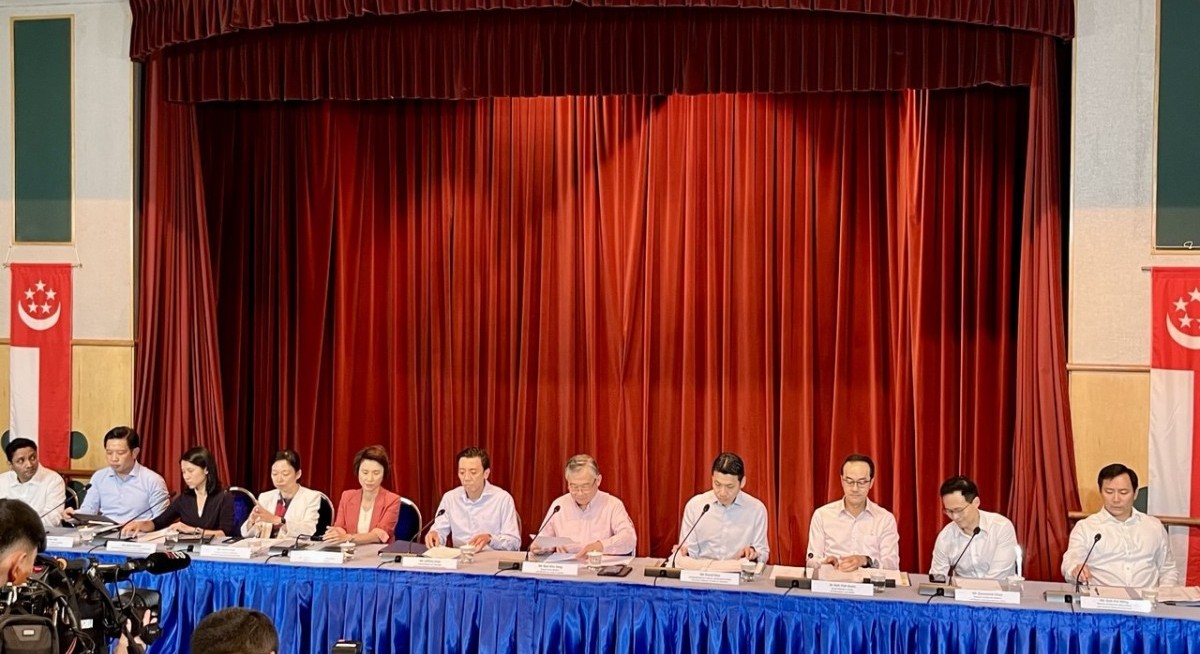“We are facing a very challenging and uncertain future because of the tariff being introduced by the US, and this is not just because of the impact of the tariff directly, but [also] because it has created a lot of uncertainty in the global economic landscape,” says Gan.
Following the Ministry of Trade and Industry’s (MTI) Aug 1 announcement of Singapore’s continued baseline 10% tariff rate, which is the lowest in Asia, Gan notes that significant uncertainties remain.
He says: “How supply chains are likely to shift as companies factor in these tariffs into their calculations is also yet to be known. There will be long-term implications on the multilateral rules based trading order that will inevitably affect Singapore and the rest of the world.”
With this, the five focus areas under the ESR “must build on fundamentals” to “stay relevant and competitive” amid a more protectionist and competitive landscape, says Gan.
See also: New workgroup to draw growth capital into Singapore
Notably, Gan says the five committees, each co-chaired by two political office holders, will report to SERT, of which Chee Hong Tat, Minister for National Development, is still a part of.
“These five committees will still be part and parcel of the SERT task force, and therefore their reports and recommendations will be presented to SERT so that the committee as a whole will then review the recommendations,” explains Gan.
He adds: “A lot of work has been done beforehand, including the industry transformation map that we developed over the years, and the Future Economy Council that we worked on — all of these are not thrown out of the window.”
See also: Singapore’s economy is on a roll, but for how long?
The addition of the five committees will also see the inclusion of several first-time political office holders in SERT.
They are: Jeffrey Siow, Acting Transport Minister and Senior Minister of State, Ministry of Finance (MOF); Jasmin Lau, Minister of State of both the Ministry of Digital Development and Information (MDDI) and the Ministry of Education (MOE); Goh Hanyan, Senior Parliamentary Secretary of both MCCY and the Ministry of Sustainability and the Environment (MSE); Dinesh Vasu Dash, Minister of State of both MCCY and the Ministry of Manpower (MOM); David Neo, Acting Culture, Community and Youth Minister and Senior Minister of State for MOE; and Goh Pei Ming, Minister of State of both the Ministry of Home Affairs (MHA) and the Ministry of Social and Family Development (MSF).
Gan says the inclusion of younger political office holders will give SERT the benefit of “new perspectives” on issues from a “fresh angle”, which could lead to new ideas and recommendations.
On the other hand, he adds that having senior and more experienced political office holders and private sector leaders in the task force will allow input into consideration when these recommendations are surfaced. “I think that the idea is to have a balance of both the experienced ones as well as the younger ones. So I think this composition is probably [the] most effective,” says Gan.
Once the committee publishes their report in mid-2026, Gan says that some recommendations will “take time to implement”, as changes “do not happen” immediately and the training and upgrading of workers is an ongoing process.
He adds: “Some of these will take several years to implement progressively. It can't happen overnight. Some will be more immediate in terms of helping companies to expand overseas, to explore new markets.”
With this, Gan urges Singapore businesses to have patience, as SERT explores ways to work with stakeholders, businesses as well as unions and workers in developing the proposed set of recommendations.
Read more about the Singapore Economic Resilience Taskforce




